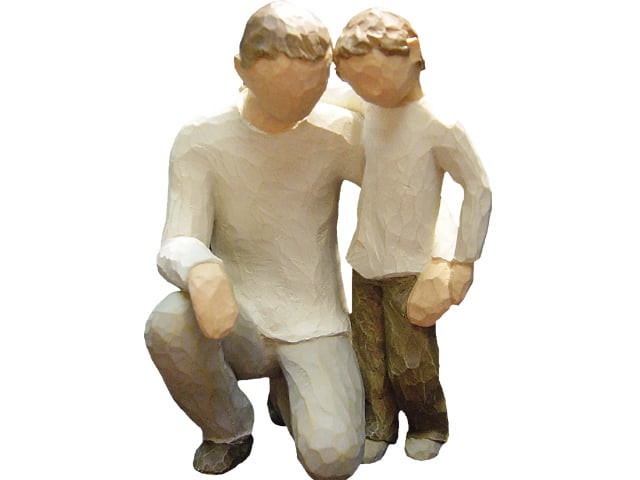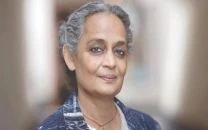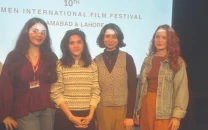My father, my teacher
I loved to share my views, experiences, aspirations and ambitions with him and always found him listening attentively.

My father, my teacher
My earliest memory of my father is lying in his lap, whilst he sat on the takht in the lawn. Each morning he would recite the Holy Quran in a rhythmic and musical tone. In a decade’s time he had written the holy book twice in beautiful calligraphy, translated it into English once and then into Urdu as well.
He was my confidant. I loved to share my views, experiences, aspirations and ambitions with him and always found him listening attentively to me. In reaction, he would instil in me virtues, without making it overtly obvious that he was continuously and constantly changing my way of thought and action. Despite being a prolific reader, I doubt he had read Stephen Coveny’s Seven (now eight) Habits of Highly Effective People or the best seller In search of Excellence. Even then, he infused the qualities these books refer to.
I learnt from him the art and science of bringing up children. Being my best friend, he allowed me the necessary closeness but ensured that the fine line that demarcated respect and discipline was never crossed.
Those fortunate children who are close to their parents are usually confident and fearless. Since success and failure are shared, their parents teach them how to handle both situations.
Whenever I went in for any academic test or examination, he would always say, “Remember, there is always a next time.” As a child, this verbal life- saving elixir gave me immeasurable confidence to participate and face the challenges of life because I stood convinced that failure would not lower my estimation in his eyes. I have seen that intimidating fathers not only crush the creative streak in their children, they also leave them frightened, mauled and with no sense of self-esteem or confidence.
My father was a typical bureaucrat at his work place. He showed empathy towards his colleagues and juniors but was a stickler for performance. His work life was filled with people who had to excel; for anything less was unacceptable. As a child, I used to accompany him to his office because he robbed me off the pleasure of playing truant at the school. His motto was to have colleagues who may have been low on loyalty to him but were high in competence.
Another aspect of his training methodology was to give me a subject to write on while he would go to the board room to attend meetings. Upon returning he would discuss at length, either in the office or at home, the content of my essays – each discussion was a learning exercise.
On Sundays my father and I would wake up very early. After praying, we would settle down at the dining table with a hot cup of tea followed by long hours of conversation on politics, religion, poetry and mundane gossip about Rekha and Madhuri’s affairs. He would tell me juicy stories surrounding the suicide of Guru Dutt (the famous actor-director of Bollywood) and hold long discussions on music.
Fate and destiny compelled him to play the dual role of being a father and a mother to me at a very young age. He dedicated his life to his children. In alignment with Khalil Gibran’s philosophy, he spun his life around, ‘Keep me from the wisdom that does not weep and the philosophy that does not laugh and the pride that does not bow its head before a child.’ A million mothers’ love combined would not match the care, love and affection that he gave to me.
As I grew each day from infancy to childhood; from adolescence to adulthood and finally embraced manhood, I saw my father enter into his youthful forties, mid-life and finally give in to old age. I hated my growing up and despised his growing old.
Richter says that ‘what a father says to his children is not heard by the world, but it shall certainly be heard by posterity.’ This is as true as any saying can get. Through this article, I beseech fathers and urge them to ‘invest’ their time in their children – befriend them! As a boy the famous composer Mozart said, ‘directly after God in heaven comes papa.’ Dad, wherever you are, I know in my heart that you are smiling!
Published in The Express Tribune, February 13th, 2011.



















COMMENTS
Comments are moderated and generally will be posted if they are on-topic and not abusive.
For more information, please see our Comments FAQ